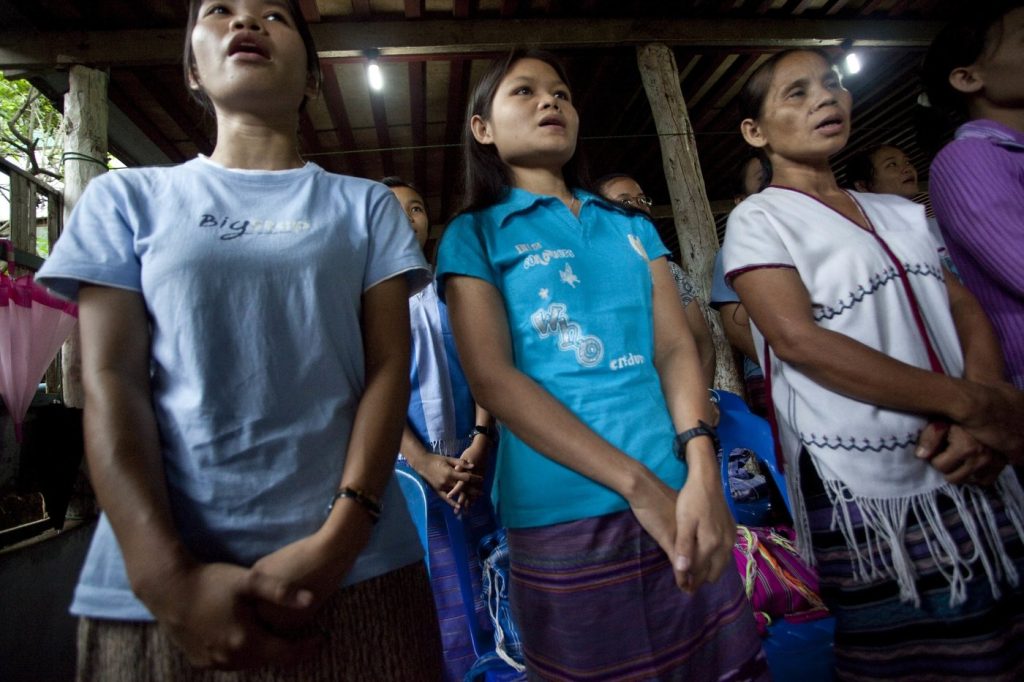BANGKOK (AP) — A recent 90-day freeze on foreign assistance programs announced by U.S. President Donald Trump has resulted in significant cuts to services for refugees from war-torn Myanmar. This has particularly affected hospital care in refugee camps in Thailand, where over 100,000 refugees are currently residing, according to activists and Thai officials. The situation has become increasingly dire as many of these camps, primarily housing long-term refugees, are shutting down critical services that many rely on for survival.
As reported by the Border Consortium, approximately 106,000 refugees live across nine camps situated along Thailand's western border with Myanmar. The consortium, which is responsible for coordinating and supplying essential needs like food and shelter to most of these refugees, highlighted that the U.S. State Department's Bureau of Population, Refugees, and Migration was their largest donor, accounting for 69% of their funding in the previous year's mid-year report.
The majority of the residents—around 80%—in these camps are part of the Karen ethnic minority. This group has been engaged in a struggle for greater autonomy from Myanmar’s central government for over seven decades. The situation in their homeland has further deteriorated since the Myanmar military seized power from the democratically elected government of Aung San Suu Kyi in 2021, resulting in a sharp increase in conflict and forcing more individuals to flee across the border into Thailand.
On a related note, Karen News, an online news platform focusing on the Karen community, announced that multiple charity organizations and NGOs providing assistance to these refugees have had to suspend their operations following a directive from U.S. Secretary of State Marco Rubio. Rubio issued an order halting nearly all existing and new foreign aid last Friday, which has drastically impacted humanitarian efforts in the region.
Despite this setback, Rubio later agreed to a temporary arrangement that would allow for some funding to continue flowing to humanitarian programs that deliver essential services such as life-saving medicine, food, and shelter. However, it remains unclear which specific programs, if any, aimed at aiding Myanmar refugees will be included under this arrangement.
According to Karen News, the suspension of operations has affected all organizations dependent on U.S. humanitarian assistance. Reports indicate that services associated with education, health care, and support for displaced war communities have had to be halted. The International Rescue Committee (IRC), headquartered in New York and providing crucial hospital services in border camps, has also suspended its operations, though they have yet to comment on the situation.
In response to this growing crisis, Thai officials have pledged to ensure that seriously ill patients residing in the camps receive medical care at provincial Thai hospitals. Chucheep Pongchai, the governor of Tak Province, which hosts three of the refugee camps, confirmed that 14 critically ill patients would be transferred to Tha Song Yang Hospital for further treatment. Additionally, Interior Minister Anutin Charnvirakul stated that the government’s National Health Security Office is prepared to allocate a budget to assist these vulnerable populations who cannot fend for themselves.
The Jesuit Refugee Service, a charity organization registered in Italy, announced that as of last Saturday, it had also halted its Urban Refugee Program that aids those living outside the camps, including in Bangkok. This suspension is a direct result of the stopped funding from its main donor, the U.S. State Department's Bureau of Population, Refugees, and Migration. Consequently, the organization has been unable to register new clients or provide services to existing ones.
The unfolding situation presents urgent humanitarian challenges, highlighting the critical need for continued support and intervention for the displaced populations affected by the crises in Myanmar and the resultant aid freeze.










